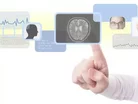EHR Adoption Moving Quickly in US

Electronic Health Record (EHR) adoption rates appear to be well ahead of the US Congressional Budget Office (CBO) estimates. In 2009 the US Congressional Budget Office estimated that the Health Information Technology for Economic and Clinical Health Act would result in roughly 90 per cent of doctors and 70 per cent of hospitals would be using a comprehensive EHR system by 2019. The health care industry is far ahead of the CBO’s timetable.
Since 2005, EHR adoption by family physicians has doubled. Researchers estimate that by the end of 2013 that number will exceed 80 per cent. In July 2012 the CDC’s Center for National Health Statistics reported just over 50 per cent office-based physicians had adapted to HER’s.
The Annals of Family Medicine published a study that noted that EHR adoption by family physicians varies from state-to-state and among different types of physicians. The report indicates adoption rates for family physicians were significantly higher than for other office-based physicians and rates ranged from as low as 47.1% in North Dakota to a high of 94.9% in Utah.
Getting patients on-board with new technology can be a hurdle for some physicians. According to a recent Forbes article by John Nosta, for patients to fully embrace new innovations, it all comes down to “doctor’s orders.” Nosta outlines several core strategies that digital health should embrace to help the average patient take a more active role in managing their health. Among the points, awareness of the technology ranks first.
Among the countries leading in EHR technology the US falls short far behind countries such as the Netherlands and New Zealand.
Additional Resources:
- McKinsey Warns of 'Gathering Storm' in US HealthcareHospitals
- US Senators Propose law to Tackle Healthcare Cyber ThreatsTechnology & AI
- Eli Lilly Alzheimer's Drug Kisunla Approved in US by FDAMedical Devices & Pharma
- Change Healthcare Cyberattack Fallout ContinuesHealth Insurance & Finance



